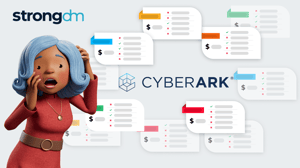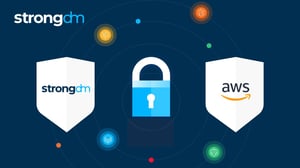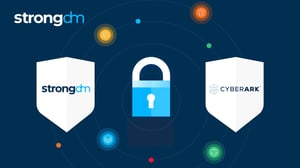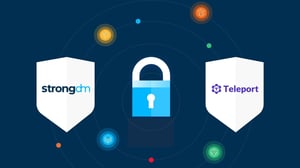
Written by
Schuyler BrownLast updated on:
September 29, 2025Reading time:
Contents
Built for Security. Loved by Devs.
- Free Trial — No Credit Card Needed
- Full Access to All Features
- Trusted by the Fortune 100, early startups, and everyone in between
BeyondTrust FKA Bomgar is an access management and endpoint security solution which provides end user access and monitoring for a variety of platforms and devices including: Linux, Windows, Mac, Unix, and other mobile and cloud platforms. BeyondTrust has a host of solutions in privileged identity & access management, privileged remote access and vulnerability management. However, if you're looking for a simple and secure way to manage access to databases, Kubernetes clusters, or other internal web applications, BeyondTrust might not be the best solution to fit your needs. This blog post will take a look at a few BeyondTrust alternatives and break down the pros and cons of each.
BeyondTrust Overview
Brief product summary
BeyondTrust offers a suite of products under their brand name. Those include Endpoint Privilege Management, Password Safe, Privileged Remote Access, DevOps Secret Safe, and Remote Support. BeyondTrust Endpoint Privilege Management allows users to approve and revoke access to critical systems while providing an audit trail for admins to track end user behavior and monitor or approve custom integrations. Password Safe allows end users and admins to manage the use and access of privileged credentials and SSH keys while also offering auditing and analytics capabilities for further security. DevOps Secret Safe is similar in that it provides centralized secrets management but utilizes REST APIs and CLI tools to streamline development workflows and allow for seamless API integrations. Privileged Remote Access provides vendors and remote workers a more secure way to access their workstations, including internal and external cloud infrastructure. It eliminates the need for a VPN and provides the benefits of PAM from a remote environment. Remote Support provides IT with the ability to remotely monitor, access, and control any customer devices on or off the corporate network. This also includes a video log to audit behaviors while also seamlessly integrating with external directories like LDAP.
Use cases
- Implement least privilege across Unix and Linux servers.
- Enforce least privilege on Windows and macOS.
- Audit and secure privileged account credentials.
- Control remote access.
- Extend PAM principles to network and cloud environments.
Pluses
- SSH access available.
- RDP available.
- Host of apps within the BeyondTrust family.
- Established in the endpoint security industry since 1985.
- Manage permissions with AD, LDAPS, RADIUS & Kerberos.
Minuses
- No comprehensive solutions.
- Need to purchase add-ons.
- Complex initial setup.
- Very high licensing costs.
1. StrongDM
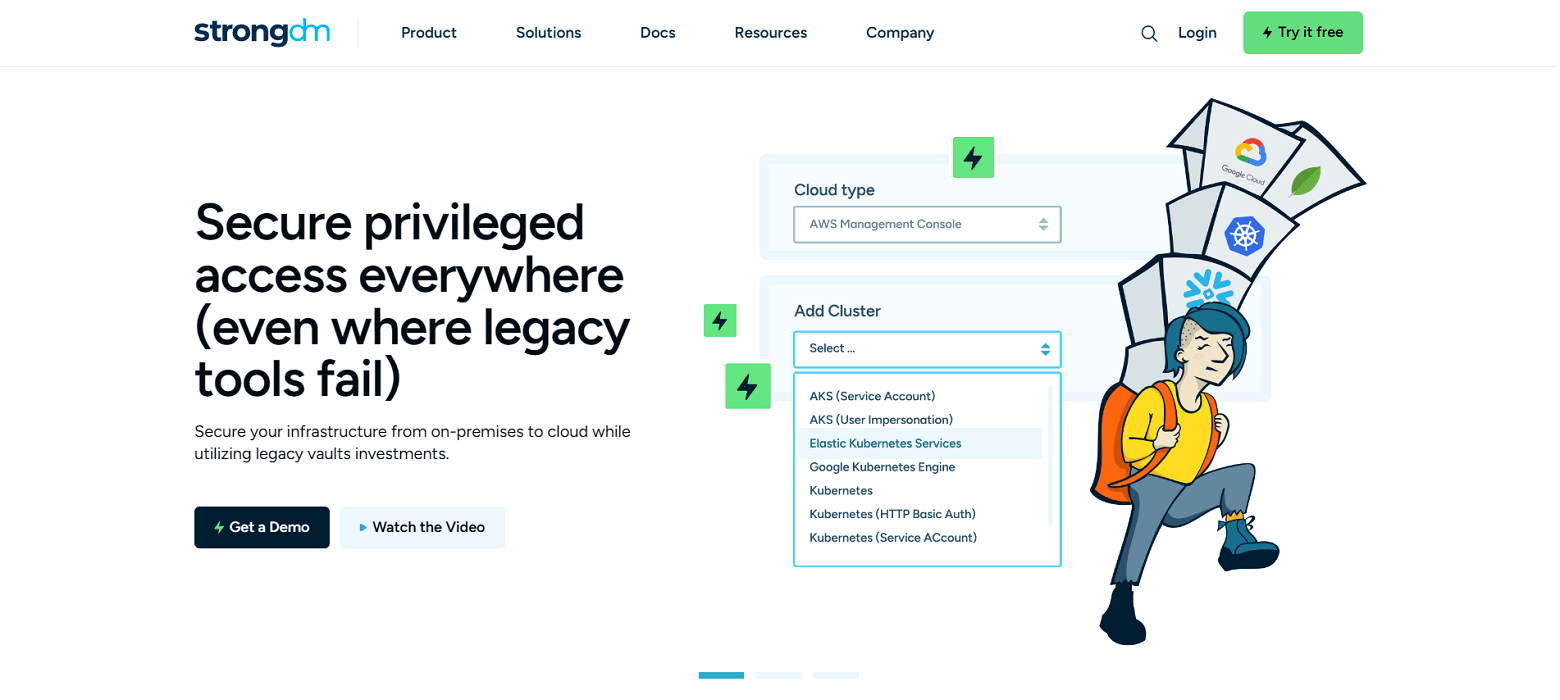
Brief product summary
StrongDM is a control plane to manage and monitor access to databases, servers, and Kubernetes. Their zero trust model means instead of distributing access across a combination of VPN, individual database credentials, and SSH keys, StrongDM unifies user management in your existing SSO (Google, Onelogin, Duo, Okta, SAML, etc...) and keeps the underlying credentials hidden. Neither credentials nor keys are accessible by end users. Because StrongDM deconstructs every protocol, it also logs all database queries, complete SSH and RDP sessions, and kubectl activity.
Use cases
- Faster onboarding- no need to provision database credentials, ssh keys, VPN passwords for each new hire.
- Secure off-boarding- suspend SSO access once to revoke all database, server access.
- Automatically adopt security best practices- least privilege, just-in-time access, audit trail.
- Comprehensive observability and visibility- log every permission change, database query, ssh & kubectl command.
- Vendor privileged access management-connect third-party vendors to resources with project-based access that automatically expires.
- Security and compliance teams-simplify HIPAA, SOC 2, SOX, ISO 27001 compliance certification.
- Modern Cloud PAM solution-built to support a variety of cloud networks, including public, private, multi-cloud, and hybrid.
Pluses
- Easy deployment - self-healing mesh network of proxies.
- No change to workflow- use any SQL client, CLI, or desktop BI tool.
- Standardize logs across any database type, Linux or Windows server, and Kubernetes.
- Graphical client for Windows and macOS.
- See and replay all activity with session recordings.
- Manage via a user-friendly web browser interface.
- Simple, straightforward pricing.
Minuses
- Requires continual access to StrongDM API for access to managed resources.
StrongDM’s G2 Reviews
- 4.8 / 5 stars
Read all of StrongDM’s G2 reviews here.
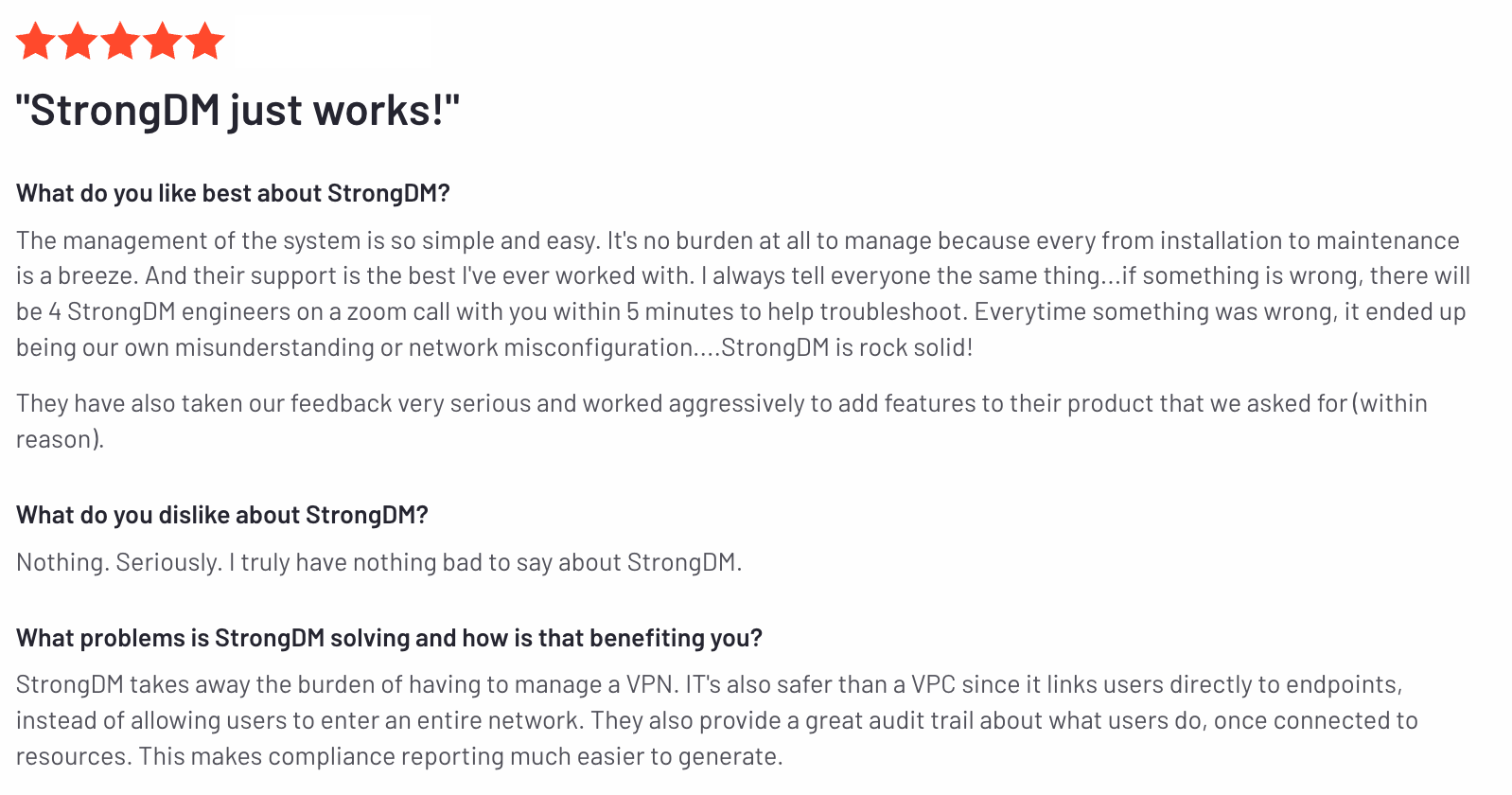
Pricing Information
StrongDM offers simple pricing, including support for all resource types.
Users have the option to sign up for a free 14-day trial.
2. CyberArk
Brief product summary
CyberArk’s Privileged Access Manager tool was designed originally to run on Windows workstations and integrate with LDAP and Active Directory (AD). It allows privileged administrators (typically systems and database administrators) to restrict access to Windows Servers, Linux servers, and some database management systems using a centralized authentication method. Add-on features can also provide a credential vault and password rotation. Access is typically through a web interface or locally installed utility. Components of the system include a password vault, central policy manager, privileged session manager. In most cases, CyberArk can provide an audit trail of queries and session replays. However, if you need to secure access to modern and cloud-native databases, Kubernetes clusters, the cloud CLIs, switches, routers, or internal web applications, there are other options to consider.
Use cases
- Centralized access to Linux and Windows servers, and some legacy databases.
Pluses
- SSH access available.
- RDP access available.
- Authenticates users using LDAP and Active Directory (AD).
- Integrates with some machine groups.
Minuses
CyberArk is not designed for any cloud-native environments, newer database management systems such as Kafka and Redis, modern infrastructure tooling (like Kubernetes, Dockers, and ephemeral environments), and often requires the end user to acquire additional CyberArk-specific software to accomplish tasks. Finally, it does not cover all users within a company, most of whom require access to systems that contain privileged information (for example, financial analysts who might need access to transactional information). Furthermore, CyberArk has a complex pricing model, and it has been reported to be “shelfware” at many companies that have purchased it.
For a deeper dive into this comparison, visit CyberArk vs. BeyondTrust: Which PAM Solution is Better?
3. Delinea
Brief product summary
Like CyberArk, Delinea is a tool that allows organizations to secure access for privileged administrators (typically systems and database administrators) to Windows Servers, Linux servers, and some database management systems via a centralized authentication method. And like CyberArk, it does not secure access to modern and cloud-native databases, Kubernetes clusters, cloud CLIs, switches, routers, or internal web applications.
Use cases
- Centralized access to Linux and Windows servers, and some legacy databases.
Pluses
- SSH access available.
- RDP access available.
- Authenticates users via LDAP and Active Directory (AD).
- Integrates with some machine groups.
- Cloud and on-premise deployable.
- Simpler pricing.
Minuses
Like CyberArk, Delinea is designed for legacy systems and highly privileged administrators. It is designed for Windows-based environments and does best with legacy databases and authentication methods (AD, LDAP). Delinea is not designed for any cloud-native environments, newer database management systems, nor modern infrastructure tooling like Kubernetes, Docker, and ephemeral environments). Finally, like CyberArk, Delinea does not cover all users within a company, most of whom require access to systems that contain privileged information (for example, financial analysts who might need access to transactional information).
Next Steps
StrongDM unifies access management across databases, servers, clusters, and more—for IT, security, and DevOps teams.
- Learn how StrongDM works
- Book a personalized demo
- Start your free StrongDM trial
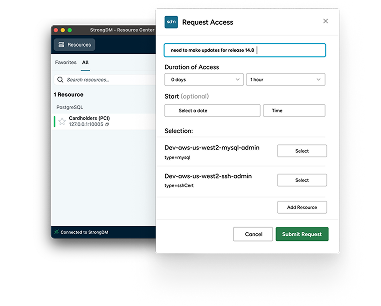

About the Author
Schuyler Brown, Chairman of the Board, began working with startups as one of the first employees at Cross Commerce Media. Since then, he has worked at the venture capital firms DFJ Gotham and High Peaks Venture Partners. He is also the host of Founders@Fail and author of Inc.com's "Failing Forward" column, where he interviews veteran entrepreneurs about the bumps, bruises, and reality of life in the startup trenches. His leadership philosophy: be humble enough to realize you don’t know everything and curious enough to want to learn more. He holds a B.A. and M.B.A. from Columbia University. To contact Schuyler, visit him on LinkedIn.
You May Also Like
